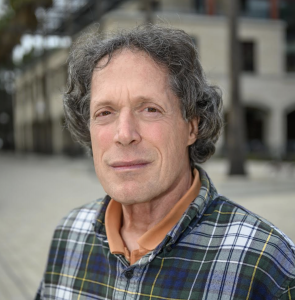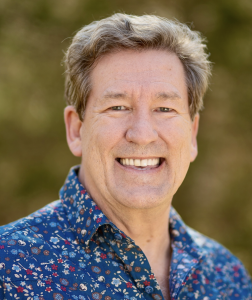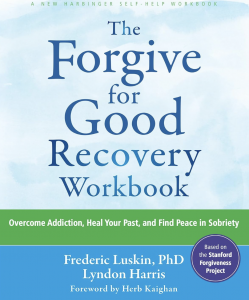This workbook is filled with proven skills and strategies for lasting recovery—rooted in groundbreaking research from the Stanford Forgiveness Project.
LOS ANGELES, CA, UNITED STATES, January 22, 2025 /EINPresswire.com/ -- Dr. Frederic Luskin and Lyndon Harris, co-founder and a Project Coordinator from the Stanford Forgiveness Projects, announce the release of their groundbreaking guide for recovery, The Forgive for Good Recovery Workbook: Overcome Addiction, Heal Your Past, and Find Peace in Sobriety. This game-changing resource will be available in paperback on March 1, 2025, offering a fresh, evidence-based approach to addiction recovery that places forgiveness at its core.
Click here for more information: https://bit.ly/42kZNye
With substance use disorders reaching epidemic levels, traditional treatments often fail to address the underlying emotional pain and trauma driving addiction. This innovative workbook provides a scientifically backed method for breaking the cycle of addiction by fostering forgiveness—both self-forgiveness and forgiveness toward others.
A New Path to Lasting Sobriety
The Forgive for Good Recovery Workbook empowers individuals to confront the emotional roots of their addiction, heal past traumas, and embrace a brighter future. Grounded in decades of research, the workbook includes:
~ Evidence-Based Strategies: Techniques to address the core emotional drivers of substance use.
~ Practical Exercises: Tools to help readers build resilience, find peace, and avoid relapse.
~ Expert Insights: Contributions from leading researchers and teachers on forgiveness and recovery
“Forgiveness is not just an emotional release—it’s a powerful tool for transformation,” said co-author Lyndon Harris. “By letting go of resentment and embracing compassion, individuals can free themselves from the pain that perpetuates their addiction.”
Healing Through Forgiveness
The workbook guides readers through a step-by-step process to forgive past wrongs and navigate the emotional challenges of recovery. By addressing unhealed wounds, readers will gain the clarity and inner strength needed to overcome addiction and thrive.
“If you’ve tried traditional treatments without success, this workbook offers a new approach—one that treats the root causes of addiction, not just the symptoms,” said co-author Frederic Luskin. “Forgiveness opens the door to true healing and lasting sobriety.”
Preorder Now
The Forgive for Good Recovery Workbook: Overcome Addiction, Heal Your Past, and Find Peace in Sobriety is available for preorder now and will be officially released on March 1, 2025.
For more information, visit https://bit.ly/42kZNye
About the Authors
Dr. Frederic Luskin is the founder and Director of the Stanford Forgiveness Projects and a leader in forgiveness research. Author of the bestsellers Forgive for Good and Forgive for Love, his work has demonstrated forgiveness’s profound mental and physical health benefits.
Dr. Luskin’s methods have been applied globally to help communities heal from trauma and are featured in major media like The New York Times and PBS. He also teaches individuals and organizations worldwide emotional intelligence, stress management, and positive psychology.
To learn more about Frederic Luskin, visit his website: https://fredluskin.com/
Harris is the co-founder of the Forgiving Communities Collaborative in Charleston, SC, which promotes forgiveness as a tool for personal and community healing. Lyndon Harris discovered the transformative power of forgiveness after leading first responder respite efforts at Ground Zero following 9/11. A former Episcopal priest, his journey reshaped his understanding of forgiveness, inspiring him to teach and research worldwide on its healing potential.
For more information, visit www.lyndonharris.com.
Amanda Kent
Boundless Media USA
+1 313-403-5636
email us here
Legal Disclaimer:
EIN Presswire provides this news content "as is" without warranty of any kind. We do not accept any responsibility or liability for the accuracy, content, images, videos, licenses, completeness, legality, or reliability of the information contained in this article. If you have any complaints or copyright issues related to this article, kindly contact the author above.




